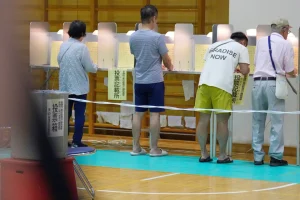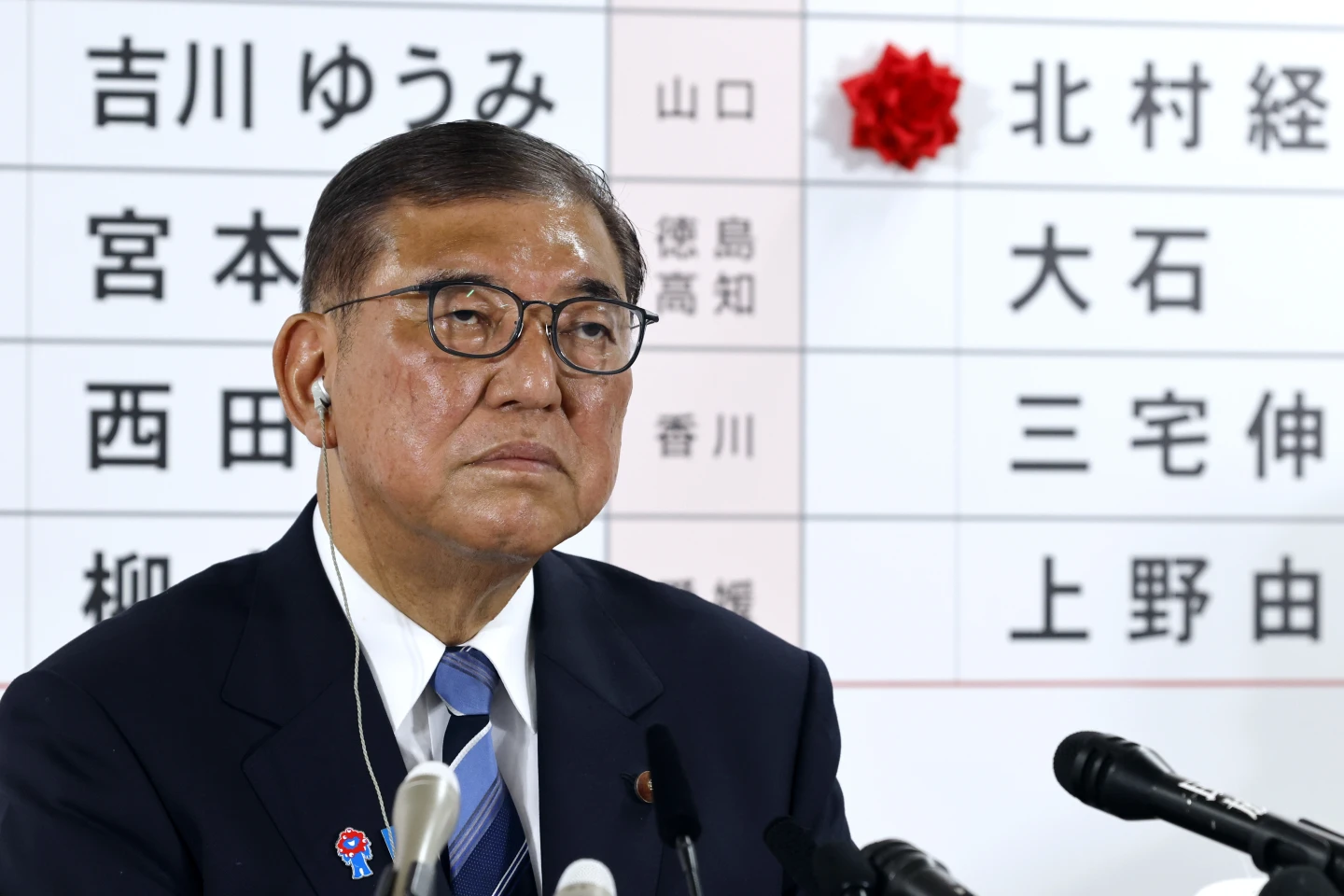Japanese Prime Minister Shigeru Ishiba has said he has no plans to quit after the country’s ruling coalition has lost its majority in the upper house.
Speaking after polls closed on Sunday, the prime minister said he “solemnly” accepts the “harsh result” but that his focus was on trade negotiations.
Voters went to the polls on Sunday for the tightly-contested election, being held at a time of frustration at the coalition of the Liberal Democratic Party (LDP) and its junior partner Komeito over rising prices and the threat of US tariffs.
Having already lost its majority in Japan’s more powerful lower house last year, the defeat will undermine the coalition’s influence, reports BBC.
The ruling coalition needed 50 seats to retain control of the 248-seat upper chamber. But with just one seat left to be announced, the coalition was on 47, according to NHK
. Half of the seats in the upper chamber were being voted on in Sunday’s election, with members elected for six-year terms.
Ishiba’s centre-right party has governed Japan almost continuously since 1955, albeit with frequent changes of leader.
The result underscores voters’ frustration with Ishiba, who has struggled to inspire confidence as Japan struggles against economic headwinds, a cost-of-living crisis and trade negotiations with the United States. Many are also unhappy about inflation – particularly the price of rice – and a string of political scandals that have beleaguered the LDP in recent years.

The last three LDP premiers who lost a majority in the upper house stepped down within two months, and analysts had predicted that a significant loss in this election would yield a similar outcome. This would open the field for a potential run at the leadership by other notable LDP members, including Sanae Takaichi, who finished second to Ishiba in last year’s leadership election; Takayuki Kobayashi, a former economic security minister; and Shinjiro Koizumi, the son of former Prime Minister Junichiro Koizumi.
In any case, a change of leadership within the ruling party would almost certainly unleash political drama and destabilise Japan’s government at a pivotal moment in US-Japan trade negotiations.
On Monday, the Tokyo Stock Exchange was closed for a public holiday, but the yen strengthened on global markets against other major currencies as the results appeared to have been expected by investors.
Support for the ruling coalition appears to have been eroded by candidates from the small, right-leaning Sanseito party, which drew conservative votes with its “Japanese First”, anti-immigration rhetoric.
Sanseito first gained prominence on YouTube during the Covid-19 pandemic, spreading conspiracy theories about vaccinations and a cabal of global elites. The fringe party’s nativist rhetoric widened its appeal ahead of Sunday’s vote, as policies regarding foreign residents and immigration became a focal point of many parties’ campaigns.
Famous for its isolationist culture and strict immigration policies, the island nation has experienced a record surge in both tourists and foreign residents in recent years. The influx has further driven up prices for Japanese people and fuelled a sentiment among some that foreigners are taking advantage of the country, aggravating discontent.
Ishiba launched a task force last week aimed at tackling unlawful behaviour committed by some foreign nationals, including those relating to immigration, land acquisitions and unpaid social insurance.


